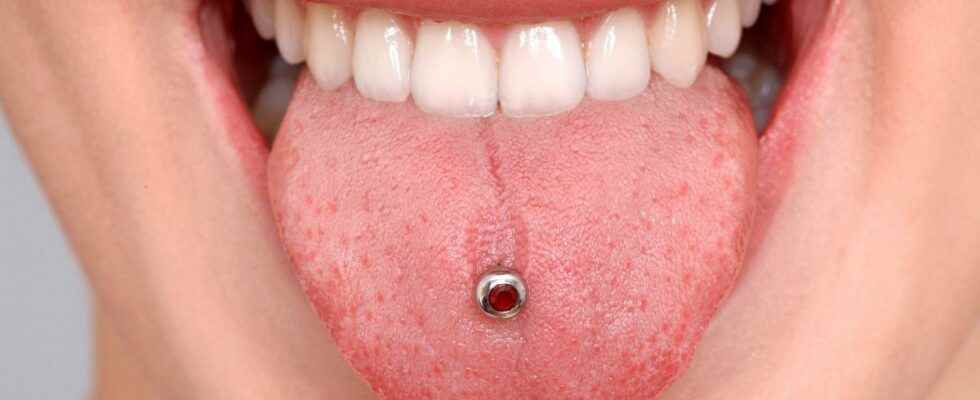Published ,
Reading 2 mins.
Mouth piercings are not without risk. According to a recent study conducted by the Medical University of Greifswald, Germany, they cause various health problems: bleeding, periodontitis, tooth loss…
“Mouth piercings must be removed to save teeth and gums” claimed the dentists, during the last world congress of periodontology and implant dentistry (EuroPerio10). In question? A vast study – carried out by German researchers – would have recently shown the dental ravages caused by these jewels.
Gum disease and tooth loss
The group of scientists analyzed eight studies involving nearly 408 participants. 236 volunteers had a lip piercing and 236 others a tongue piercing. One in five participants also had piercings in more than one oral area.
By comparing these teeth/gums installed near piercings to healthy oral places, the scientists discovered real differences.
“Our study found that many people with oral piercings had deep pockets and gaps around their teeth, as well as receding and bleeding gums.“said study author Professor Clemens Walter of the Medical University of Greifswald with concern.
Symptoms, often irreversible, which must be taken seriously.
“These are all signs of periodontitis (…) which can lead to tooth loss. People with tongue and lip piercings should remove them to protect their teeth and gums from further damage“.
The researchers also detected gingival recession (a receding of the gums from the teeth, exposing the underlying roots) and bleeding gums.
Consult a GP online
Piercings: patients are encouraged to “remove them”
The researchers also identified particularly affected areas within the oral cavity.
“The findings suggest that oral piercings, particularly those performed in the tongue, negatively affect adjacent teeth and gums. In those with tongue piercings, the damage was particularly noticeable around the two lower front teeth, called the mandibular incisors, which are important for biting and chewing food.“, says Professor Walter.
In addition, the longer the duration of wearing the piercing, the greater the risk of dental damage seems to increase.
For all these reasons, “Dentists should inform their patients of the risk of periodontal complications when wearing oral piercings, and people with these piercings should be strongly encouraged to remove them.“, conclude the researchers.
